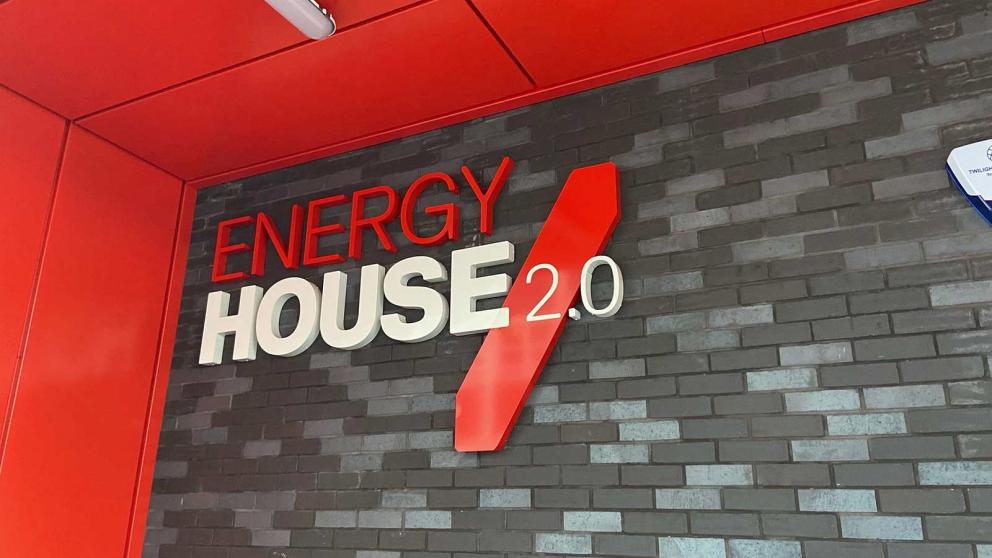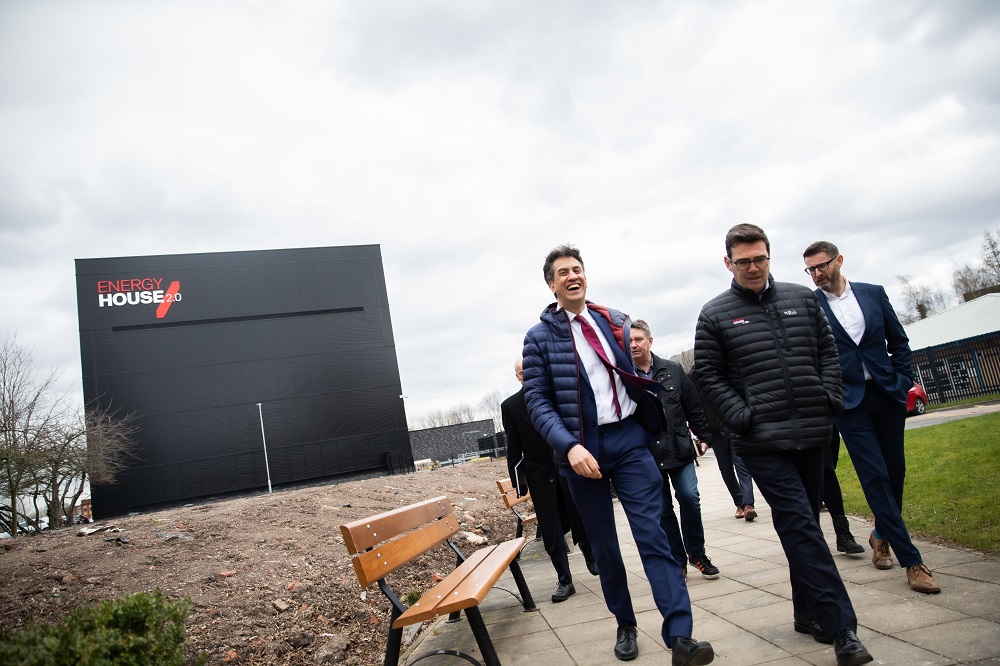Shadow Secretary of State Ed Miliband visits Salford’s net zero research facility

The University of Salford’s Energy House Labs welcomed a visit from MP Ed Miliband, Shadow Secretary of State for Climate Change and Net Zero, who was given a tour of its leading research facilities that are developing innovative solutions that support the UK in its mission to reach carbon net zero by 2050.
The visit to the University coincides with Miliband’s visit to Manchester where he unveiled Labour’s Five Point Plan for Energy Security. Accompanying Miliband was Andy Burnham, the Mayor of Greater Manchester, and Paul Dennett, Salford City Mayor. Using the University's world leading research and expertise, discussion concentrated on the subject of how rising fuel prices could be offset by retrofitting programmes.
Ed Miliband MP, Shadow Secretary of State for Climate and Net Zero, said: “I was delighted to visit the University of Salford's Energy house today. This cutting edge research is essential to delivering a national home insulation scheme, which is the best way to cut household energy bills, cut our gas imports, and tackle the climate emergency.”
Professor Will Swan, Director of Energy House Labs, added: “Now more than ever, we need to address the issue of net zero for new and existing homes both locally and globally. Energy House Labs is working with industry and policy makers to deliver this and demonstrate that Salford and Greater Manchester are leading the way in not only undertaking research but making sure the findings of that work are put into the hands of the people who need it.
“Net zero homes is a challenge and cuts across research, policy, skills, and innovation, to directly impact people’s everyday lives, whilst addressing global challenges.”
Labour’s Five-Point Plan for Energy Security:
- An energy efficiency revolution to insulate 19 million homes in a decade, cut gas imports by 15% and cut bills by up to £400.
- Double our onshore wind capacity to 30GW by 2030, to power an extra 10 million homes
- Increase offshore wind capacity to at least 75GW by 2035.
- Triple solar power by 2030, back tidal power and further investment in hydrogen.
- End the delay on nuclear power, confirming Sizewell C and backing SMRs.
About Energy House Labs
For more than a decade, the University of Salford’s Energy House Labs has been leading the way in low carbon innovation in the home. Energy House 2.0 opens this year and is part funded by the European Regional Development Fund (ERDF). It will build on the success of Salford Energy House, the world’s first full sized, two-bedroom, brick built terraced house constructed inside an environmentally controllable chamber. Energy House 2.0 has two environmental chambers and can replicate climatic conditions and environments experienced by 95% of the global population.

For all press office enquiries please email communications@salford.ac.uk.
Share:
